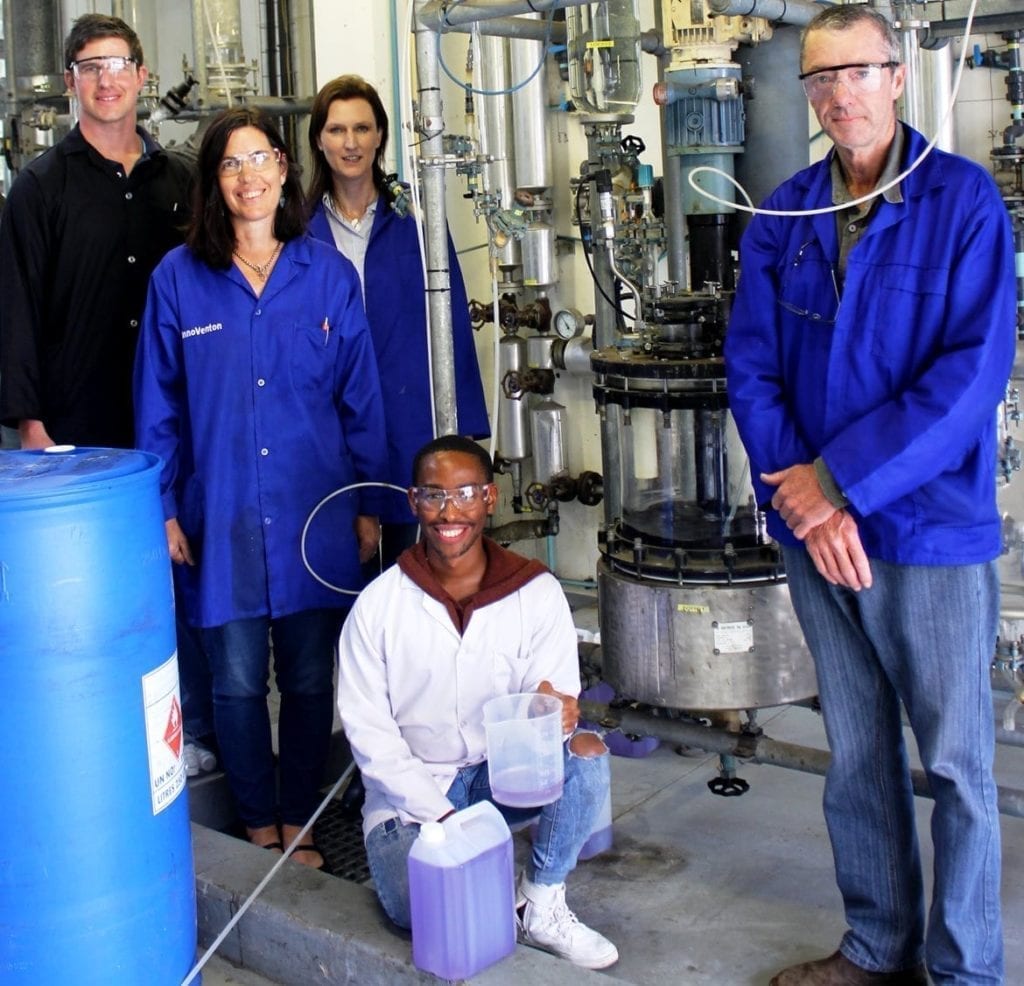In response to the COVID-19 epidemic, an unprecedented demand for sanitizing and disinfectant products is beginning to ripple through the manufacturing sector.
For instance, Arkema (Colombes, France; www.arkema.com) has decided to repurpose a production line in order to manufacture 20 tons/week of alcohol-based solution to be distributed free of charge to hospitals in France. Arkema will be using a pilot line at its Rhône Alpes Research Center (CRRA), near Lyon, which will be dedicated to the manufacture of an alcohol-based solution in order to help out healthcare professionals now under considerable strain. The solution will be supplied to the French health authorities, and will be earmarked for the mass restocking of public hospitals.
At Nelson Mandela University (NMU; Port Elizabeth, South Africa; www.mandela.ac.za), a group of scientists have begun producing hand sanitizer at InnoVenton, the University’s Institute for Chemical Technology. The InnoVenton pilot plant produced its first batch of 200 L of hand sanitizer within two working days.

A team from NMU’s Institute of Chemical Technology have converted a research pilot plant to produce hand sanitizer to help the university respond to the COVID-19 crisis (Source: NMU)
“We had to make do with what we have, taking into account the urgency,” says InnoVenton’s Dr. Nicole Vorster.
“First, we had to develop a recipe at laboratory scale and then source the ingredients. As there is currently a shortage of alcohol in the country, we could only source the last two 250-L drums of ethanol internally. We are now searching countrywide for more.”
Fortunately, the other ingredients – glycerol, to soften the liquid’s effect on hands, water, colorant and perfume – are all still available at the University.
InnoVenton’s pilot plant is already set up for the synthesis of chemicals, as well as distillation of flammable solvents, such as alcohols.
The first batches of the hand sanitizer are presently being decanted so that staff who man key entrances can spray the hands of staff, students and visitors coming to the university.
Firmenich (Geneva, Switzerland; www.firmenich.com) is adapting the production of its Geneva manufacturing sites to donate 20 tons of disinfectant solution to the Geneva University Hospital (HUG), and medical and emergency services. “As a responsible Swiss company, we must take action and lead by example to help our local community during these exceptionally challenging times,” commented Gilbert Ghostine, CEO of Firmenich.
Furthermore, pharmaceutical chemical maker Hovione (Loures, Portugal; www.hovione.com) began manufacturing disinfectant gel at its plant in Macau. In response to the initiative in Macau, Hovione CEO Guy Villax put staff at the company’s plant in Loures, Portugal, to work making alcohol-based sanitizer at metric-ton scale. Hovione is distributing it to hospitals, other healthcare facilities, and municipalities in solution and gel formulations.
Hovione has enlisted a dedicated production line in Loures staffed by a team of about 30 workers. The company is using a formula available from the World Health Organization involving mainly ethanol or isopropyl alcohol and glycerin. Production volume was expected to reach 5 metric tons (m.t.) during the week of March 16 and reach as much as 30 m.t. by the following week.
“At the moment we have hospitals asking us for 6 to 10 tons, small entities asking for 100 L,” says Filipe Neves, pilot plant operations director, who is overseeing the project for Hovione in Loures.
Last month, Lanxess AG announced that it was increasing the supply of its disinfection product Rely+On Virkon, in response to the coronavirus outbreak.